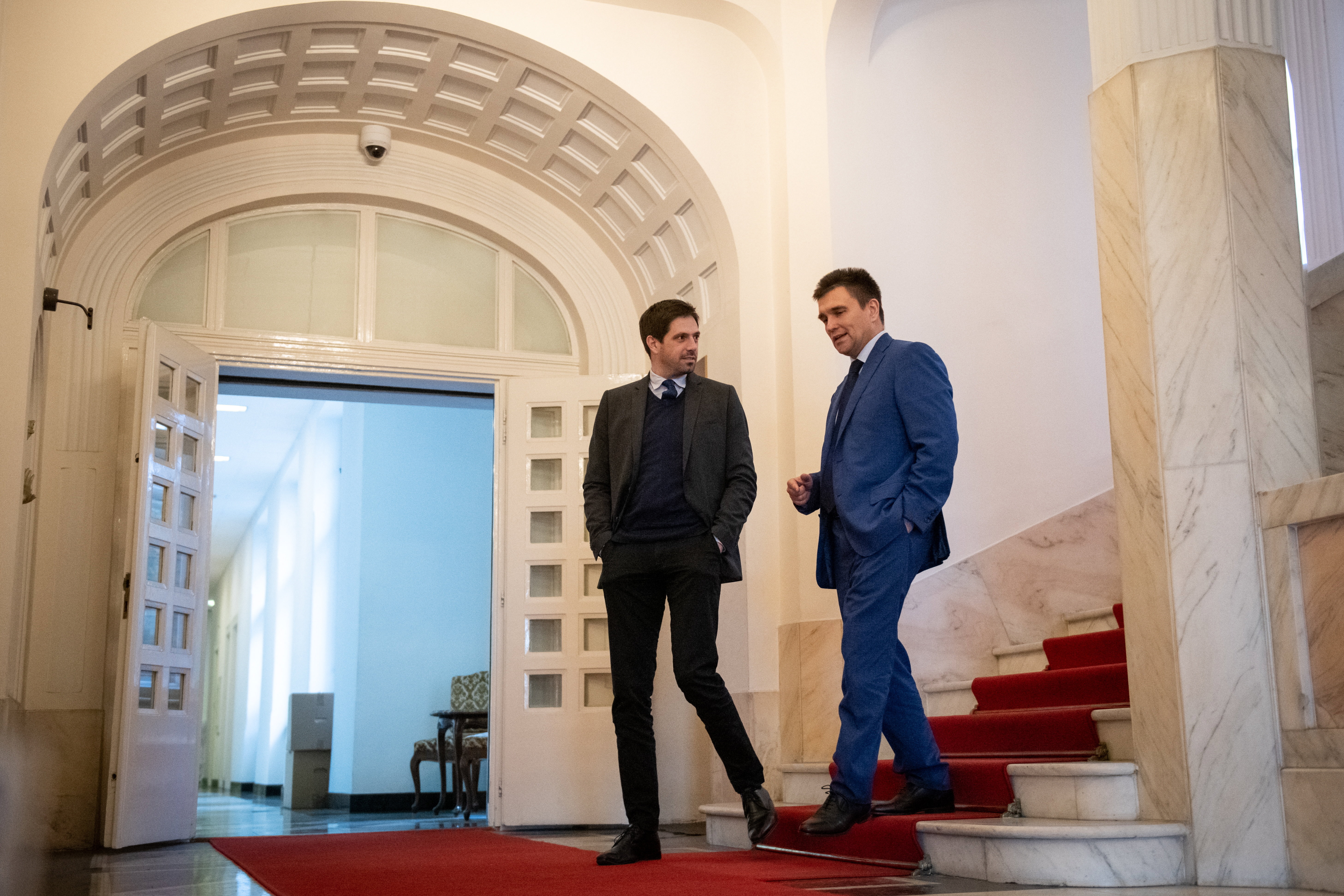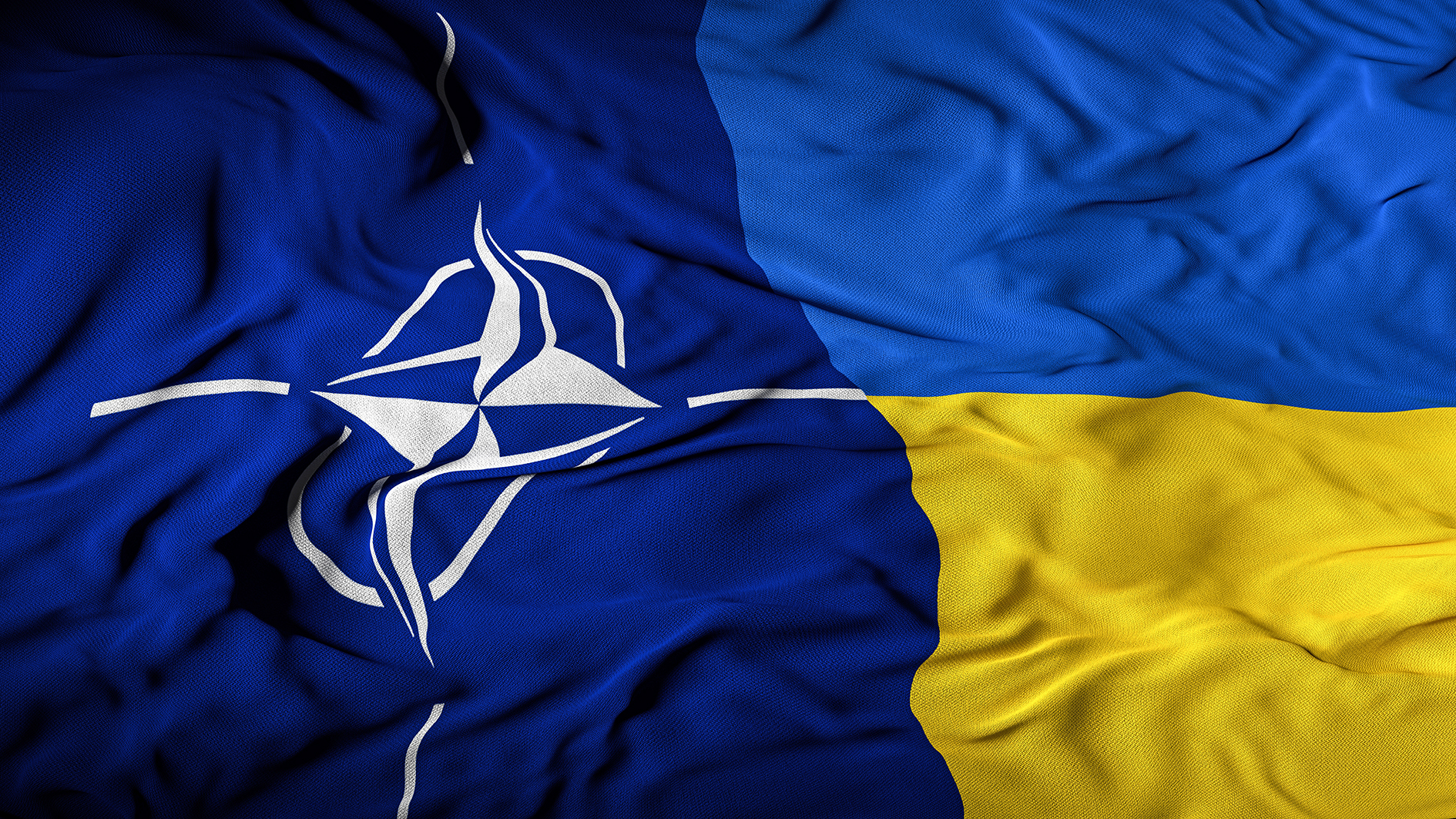Hungary Tries to Block NATO-Ukraine Meeting Over Ethnic Education

Deputy Minister at the Ministry of Foreign Affairs and Trade (KKM) Levente Magyar (left) welcomes former Ukrainian Foreign Minister Pavlo Klimkin in Budapest on March 21.
Photo by MTI / KKM
Secretary-General of the North Atlantic Treaty Organization Jens Stoltenberg declared on March 14 that he would convene the NATO-Ukraine Commission, a high-level meeting of the military alliance’s principal forum for cooperation with Ukraine, for the first time in several years on April 4, despite objections from Hungary.
The last meeting occurred in 2019 in Kyiv, where NATO ambassadors joined Ukrainian President Volodymyr Zelenskyy and his cabinet, some three years before Russia’s invasion of Ukraine.
“This is an established framework. I have the mandate to convene it,” Stoltenberg said, according to the Associated Press. “In respect for the issues that Hungary has raised, I have not convened it for some time, but now I will continue to convene the meetings of the NATO-Ukraine Commission.”
After meeting with Stoltenberg in the morning, Minister of Foreign Affairs and Trade Péter Szijjártó called the decision to convene a meeting of the NATO-Ukraine Commission, despite Hungary’s opposition, a “violation of NATO unity,” during a break at a meeting of European Union foreign ministers in Brussels, according to state news agency MTI.
Hungary’s persistent opposition to NATO-Ukraine Commission meetings stems from a law adopted in Ukraine in 2017, which the government has claimed prevents the Transcarpathian ethnic minority from studying in Hungarian. According to the Ministry of Foreign Affairs and Trade, this was bolstered by further legislation passed in December 2022 that would turn 99 Hungarian minority primary and secondary schools into state-run institutions and reduce the class hours taught in Hungarian to just 20% after grade four from September.
OSCE Appeal
Consequently, on March 14, Szijjártó sought the assistance of the High Commissioner on National Minorities of the Organization for Security and Cooperation in Europe (OSCE), Kairat Abdrakhmanov, in postponing the implementation of the law.
Having himself called the “unacceptable” legislation a “disgrace,” Szijjártó added that the commissioner also said the Ukrainian provisions violated international law. Prime Minister Viktor Orbán also raised the subject during a video conference held on March 21 with his counterparts from Greece, Slovenia, Slovakia, and Latvia, and European Council President Charles Michel, to prepare for a summit later in the week in which the war in Ukraine and economic issues are on the agenda.
Regarding Ukraine’s candidacy for accession into the European Union, Orbán emphasized that to be accepted, Kyiv must not disregard the rights of minorities, such as the Hungarian minority, living in its territory.
Meanwhile, Fidesz parliamentary group leader Máté Kocsis said on Facebook on March 17 that Fidesz MPs would “unanimously” vote in favor of Finland’s accession into NATO at a parliamentary session scheduled for March 27.
The same day, Turkish President Recep Tayyip Erdoğan announced that Turkey would also agree to Finland joining the military alliance, following a face-to-face meeting with Finnish President Sauli Niinistö, according to business daily Világgazdaság [Global Economy]. However, Sweden’s bid to join NATO remains uncertain, with the Fidesz parliamentary group saying that MPs would decide on the matter “later.”
This article was first published in the Budapest Business Journal print issue of March 24, 2023.
SUPPORT THE BUDAPEST BUSINESS JOURNAL
Producing journalism that is worthy of the name is a costly business. For 27 years, the publishers, editors and reporters of the Budapest Business Journal have striven to bring you business news that works, information that you can trust, that is factual, accurate and presented without fear or favor.
Newspaper organizations across the globe have struggled to find a business model that allows them to continue to excel, without compromising their ability to perform. Most recently, some have experimented with the idea of involving their most important stakeholders, their readers.
We would like to offer that same opportunity to our readers. We would like to invite you to help us deliver the quality business journalism you require. Hit our Support the BBJ button and you can choose the how much and how often you send us your contributions.








